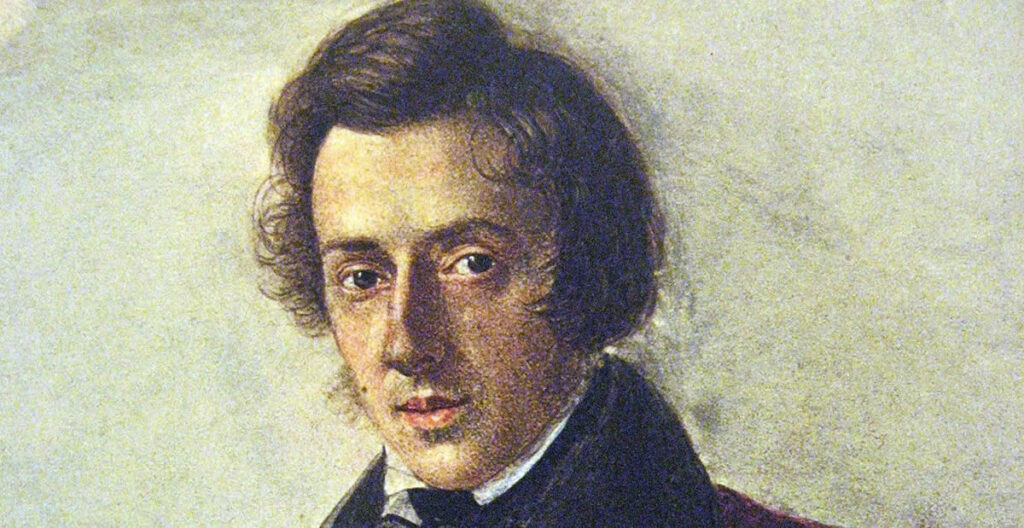Frédéric Chopin, the renowned Polish composer and pianist of the Romantic era, left an indelible mark on the world of classical music. His compositions continue to captivate audiences with their emotional depth, technical brilliance, and exquisite melodies. In this blog post, we delve into the realm of Chopin’s genius and present a curated list of his top 7 compositions that showcase his musical prowess.
- Nocturne in E-flat Major, Op. 9, No. 2: Considered one of Chopin’s most beloved works, this nocturne exemplifies his ability to evoke deep emotions through his compositions. With its lyrical melodies and delicate phrasing, this piece embodies a sense of introspection and melancholy, making it a quintessential representation of Chopin’s romantic style.
- Ballade No. 1 in G minor, Op. 23: This captivating ballade takes listeners on a journey of intense emotions and dramatic storytelling. From its haunting opening notes to its thunderous climaxes, Chopin’s Ballade No. 1 is a masterful display of his virtuosity and his ability to create a musical narrative that grips the soul.
- Études, Op. 10 & Op. 25: Chopin’s set of 24 Études are not only technical exercises but also breathtaking musical works. Op. 10 and Op. 25 each consist of twelve studies, showcasing Chopin’s profound understanding of the piano’s capabilities. From the fiery brilliance of the “Revolutionary Étude” (Op. 10, No. 12) to the ethereal beauty of the “Aeolian Harp” (Op. 25, No. 1), these Études demonstrate Chopin’s genius and his ability to combine technical challenges with musical expression.
- Polonaise in A-flat Major, Op. 53 “Heroic”: The Polonaise in A-flat Major is a quintessentially Polish dance transformed into a grand concert piece. Bold and triumphant, it represents Chopin’s patriotic spirit and pays homage to his homeland. With its majestic themes and virtuosic passages, the “Heroic” Polonaise remains one of Chopin’s most iconic compositions.
- Sonata No. 2 in B-flat minor, Op. 35 “Funeral March”: The Funeral March Sonata stands as a testament to Chopin’s ability to convey profound emotions through music. The somber and hauntingly beautiful Funeral March movement, which is the centerpiece of the sonata, has become one of Chopin’s most recognizable pieces. Its mournful melodies, accompanied by the iconic march rhythm, create an atmosphere of profound sorrow and reflection.
- Mazurkas: Chopin’s Mazurkas are a collection of Polish folk-inspired dances, each a miniature gem. These intimate compositions reflect the spirit of Chopin’s homeland and showcase his ability to infuse simple melodies with deep sentiment and intricate harmonies. From the poignant melancholy of the Mazurka in A minor, Op. 17, No. 4, to the joyful exuberance of the Mazurka in F-sharp minor, Op. 6, No. 1, these pieces display the breadth of Chopin’s musical language.
- Piano Concerto No. 1 in E minor, Op. 11: Chopin’s Piano Concerto No. 1 is a dazzling display of his compositional and pianistic prowess. With its lyrical melodies, breathtaking cadenzas, and seamless interplay between the piano and the orchestra, this concerto exemplifies the brilliance of Chopin’s writing. The second movement, in particular, enchants listeners with its tender and heartfelt Romanze, displaying Chopin’s ability to create intimate musical dialogues.
Frédéric Chopin’s musical legacy remains unparalleled, and his compositions continue to inspire and move audiences around the world. From the delicate beauty of his Nocturnes to the fiery brilliance of his Études and the emotional depth of his sonatas, Chopin’s music transcends time and touches the very essence of human emotions. Exploring the top 7 compositions listed above will undoubtedly reveal the genius and artistry of this remarkable composer, securing his place among the greatest masters of classical music.


Comments are closed